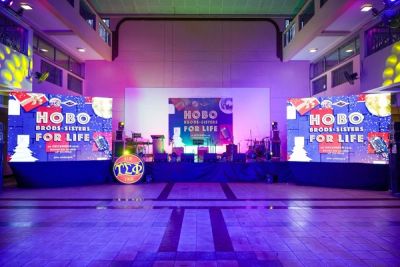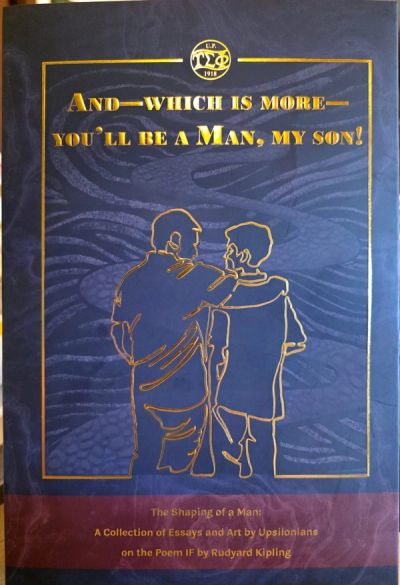Arts
Raul "Dondoy" Nava '68 - The Wandering Upsilonian Jew by Rogie Concepcion '66
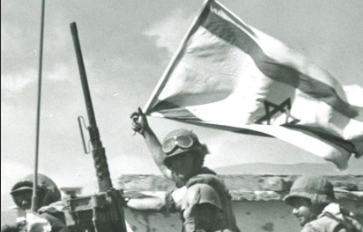
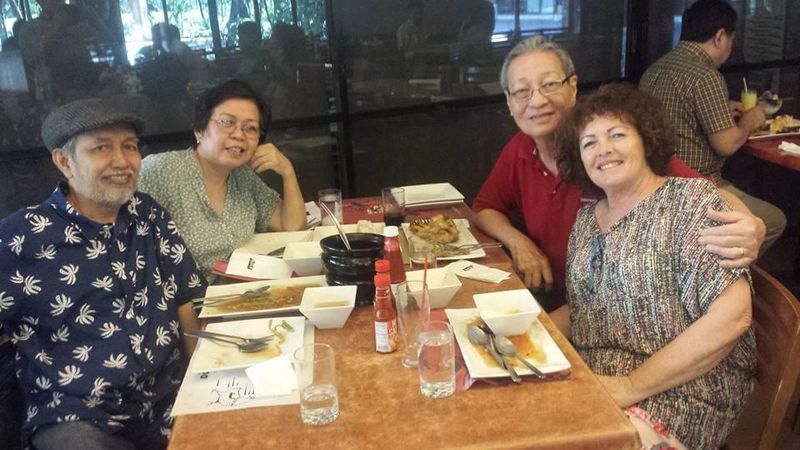
Brod Dondoy Nava '68 and Wife Racheli on his last visit to Manila, also in phot on the left is brod Sonny Villariba '66 and sis Lynette Advincula '68
THE WANDERING UPSILONIAN JEW
I first met Raul (Dondoy) Nava in Lucena, before he joined the fraternity, when Sonny Villariba ’66 invited me to his hometown. Sonny and Dondoy were longtime friends and classmates in Lucena and Ateneo. Dondoy was initiated to the fraternity in 1968. We lost contact with him after university.
Through the fraternity grapevine, there were rumors of Dondoy. He was somewhere in Israel, living as a kibbutznik.
Fascinated by the history of Israel and the Kibbutz Movement, curiosity overtook me. I had an opportunity to find him when Tess and I visited Israel but failed to locate him.
Nevertheless, we had a fascinating 1-day visit to Degania Bet, where we were met by Uzi Benshalom, one of our first guests at the Baldwin Village Inn and a senior member of Bet, who introduced us in detail to their way of life. Established in 1920, Bet was the progeny of Degania Alef, the mother of all Kibbutzes, that was established 10 years earlier in 1910.
Eventually, and after 50 years, I reconnected with Dondoy. We caught up with each other’s life journeys. Dondoy’s unique odyssey as he describes it, is narrated in his own passionate voice, (except for some light editing). Because of its length, I will post it as a series. After all, it covers almost a lifetime.
Rogie Concepcion '66
THE JOURNEY OF RAUL NAVA, BATCH 1968
PART 1: WHERE IS DONDOY?
Rog - you can share this with anyone who shows interest in the kibbutz way of life (or what was the kibbutz way of life...)
and we still consider ourselves 'communists - simply because we still live in our commune - even if it's a privatized kibbutz...!!!
POST GRADUATION, THE STARTING POINT
Rogie - Shalom!!!
I arrived in Israel on the spring of 1971 after spending about a year on a traineeship with AISEC
AISEC paired me off with American Express (AmEx) - Marketing Dept as I was a marketing major) together with Brod Manny Encarnacion ('68). We were in New York at the time. We met each other a lot and we had hectic schedules with other AISEC trainees from other countries.
We had a hyperactive social director from England and she saw to it that we're scheduled every weekend, every holiday and every drop of a coin's whim to have a meeting, gathering, a party or just a simple drinking and womanizing bout even on weekdays.
I seemed to have made a good impression on my American Express bosses because after my regular stint of three months, I was told that they're extending my contract for another three months and were transferring me to the office of the VP of International Personnel.
Of course, I agreed, and I was told that at the time they're negotiating and renewing the company's working contracts. They want me to work on the Far East section composing of AmEx offices in the Phil, Hongkong, Japan, Singapore, and Bangkok. A bit of a headache since in their labor contract, for example in Northern Japan- Hokkaido- they have a clause that states that each worker gets 10 kilos of coal every week (I think - I forget now) during winter. ... and in the Phil - the workers get an umbrella allowance during the rainy season...as well as a thirteenth month salary at the end of the year... etc.,... I asked why so many stupid clauses like these - the answer was - that's the practice ever since they can remember.
So, in the end I thought up even more stupid clauses like birthday gifts for the family pet or an office picnic near Mt. Fuji during the cherry blossom spring festival...crazy things just to make them realize how stupid some of the clauses are in their labor contracts. I worked hard on those contracts and in the end, I think I succeeded in presenting a saner contract that both sides could readily and honorably accept.
I think I succeeded again because at the end of the 3 months I was again facing the company's Personnel VP. He ceremoniously announces that they're giving me another extension for which I told him to speak with the boss of AISEC and explain the situation (AISEC by this time was hounding me and convincing me to end my traineeship with AmEx for which I said it was not my idea but totally AmEx's idea to continually extend my training over and over again...) there were several nasty looks from the AISEC people after that...but what can I do...?
AmEx this time put me up with the VP of Banking who explained that (this was then hush-hush...) AmEx wants to invest in International Banking and they want to do a world study of all countries and their political, economic, social etc. conditions. Each of us - we were about more than a dozen making these studies- will make a report on whatever countries we were given. Of course, I was again given the Far East sector.
I thought that this period in my life was the most fruitful and most interesting that I ever had...
I was proven wrong...!!!
I read and never tire ‘listening’ to Dondoy’s life journey. I find it amazing and inspiring, and his conversational style of narration, I can almost see him talking in front of me. Blazing a trail outside of the usual beaten path, I guess it is the confidence that all of us possess, taking a leap of faith, and searching for new directions.
“Yours is the Earth and everthing that’s on it.. And which is more – you’ll be a Man, my son!”
PART 2: SHALOM ISRAEL
Rogie - Shalom!!!
... a wonderful life and business odyssey you, your wife Tess and your children had, have and are having...
a real and true Upsilon experience...!!!
After a short visit to several European countries in springtime of 1971 - I finally arrived in Israel with plans to stay in a kibbutz, learn about the system of which I heard a lot during my BA days at UP and to learn about the kibbutz way of life. It was also advisable to learn the language - right?
So, I came to Israel on an ULPAN program which means - work for half a day and Hebrew studies for the second half...I arranged this program while I was still in New York).
Of course, I was the butt of jokes among my friends - Americans and others - ' You don't even look Jewish, Raul!!!' 'How will you manage there - no rice...?' 'Tell me - is Hebrew different from Yiddish...?
I didn't know ...I didn't care... all I thought about was that after all our case studies at BA - some wise guy would almost always say - 'But failure can't happen at the kibbutz in Israel...read all about their successes in business, agriculture, and their way of life...ha???
Success - one cannot argue with them, but Israel faced a lot... a lot of problems...I just did not know them that well yet then...after all there was still the state of euphoria felt all throughout Israel and the Jewish world after the glorious success they had during the six days war... How could one speak of failure...?
Also...for all this success, maybe there's a way I could learn enough to bring it back to the Philippines and implement the same things...hopefully...I still remember in my study of the business conditions I made for AmEx I stated that the Philippines is in a volatile state...too much nationalism...young people like us tend to be overly idealistic, no patience...which can lead to an upheaval in time unless they come up with programs like...yes - the kibbutz...!
So, I became engrossed in the kibbutz way of life and became part of it.
I was a 'strange animal' in the kibbutznik's eyes...chinky eyed, talks of strange ideals, although a very good worker, very strange...
But this strangeness made members invite me to their homes and we would talk, share ideas, and they would try to explain how the kibbutz works, how it was run, what the short and long-term goals in all aspects are.
A short time later, we attended the graduation of their 18-year-old children. I got a shock of my life when they started the evening singing the 'International' socialistic song. I was constantly looking around expecting to find the police or soldiers rushing in to arrest everyone just as what would have happened if it was back in the Philippines during our time...
It was explained to me that the kibbutz had strong socialist roots, they even mourned when Stalin died...so pro-Russia in almost every aspect of their lives...
'Kibbutz' is... - communist...I nervously asked...
Why does communist bother you...? One asked...
Look at it this way we live in a commune...so we're communists...simple as that...don't put any more meanings into that...we're simply a big family living in a commune...with all the socialistic grains that go with it...
I let it go at that...
As you probably know at that time money did not have any importance unless you go to the city (Haifa, Tel Aviv, etc.) or even the closest town. We were provided with whatever work clothes we needed...we live in our own apartment houses (small though they may be...we eat all our meals at the dining hall...we had movies twice a week at our theatre...we received rations of cigarettes (weekly)...we joined the kibbutz trips for members as well as special trips for our Ulpan class...and I became a contributing member of the Kibbutz cultural committee - choir, playing guitar, painting , preparing for all the feasts and holidays during the year.
Then there was the question of workplace...at first they offered me a place at management in one of our factories...I said I already know that - I want to work in places that I don't know so I rotated on various work places at the rate of about once a month - at the poultry, the our fruit orchards growing (what else?) citrus fruits, oranges, lemon, mandarins, grapefruit, and many others...
I also worked at growing seedlings of many various plants...at our garage shop tinkering with various farm machines and other farm implements...at the kitchen as well as the dining room (they said they're going to add more kilos on me- I did look a bit undernourished then) becoming the kibbutz' master rice cooker...and I was also given charge of our theatre daily upkeep as well as receiving performers and artists coming-
In short, there was no work place in the kibbutz that I did not try except maybe the last place which was the apex of all work places even for seasoned kibbutz members and that is - the COWSHED with all of its 350 milking cows and an equal amount of bulls - we raised both boy and girl calves when they were born and the girls turned out to be heifers and the boys - bulls which we sold by the time they reaches 800 kgs more or less in groups of about a dozen each batch.
As we finished the ULPAN I was asked by our moderator where I preferred to work permanently as there were many offers from different work places. I never hesitated for a moment when I told him that I want to work at the dairy cowshed. I worked there continuously for more than ten years - becoming an expert milker, as well as being in charge of the calves along with an aged member who has a fantastic memory for remembering the names of the cows (he was the one who gave them names as calves...)
PART 3: OCTOBER 1973, WAR BREAKS OUT ON YOM KIPPUR, DEATH IN THE FAMILY
And then the war broke out. Five of our kibbutz members were killed - one was a pilot who was my next-door neighbor with three daughters...and a wife...
I found myself in charge of the whole dairy farm together with the elderly man - we ran the whole dairy farm with 3rd and 4th year high school kids...I took charge of the milking (three times a day and looking after the calves as well as the machines)
In mid- November I suddenly received news that my father died of a heart attack in Boston. He had been given special permission (remember it was Martial Law then) to undergo laser operation. His classmate, who was a physician, was part of a team that developed the operating procedure.
The operation was successful but while recuperating, he suffered a heart attack from which he did not recover.
He had planned to visit me here in Israel as soon as he was able. We were all looking forward to meeting each other and him seeing what he believed was a new way of life that I found, in a strange and far away country...a dream... a dream come true...a live dream... how I wished he too had experienced this way of life...
I was devastated. When I arrived in Boston, I learned that my mother had gone on to New York. The next morning, we booked a flight to the Philippines, but had to change planes in San Francisco. Separate arrangements were also made to bring my father’s remains back home.
While at the ticketing counter I was asked...'Mr. Nava...and Mrs. Nava?' I said - 'Yes'. She went on...'I don't know how to put this, are you in any way related to a Dr Nava?
My father, I said...a strange coincidence (she added) ...and I don't know if it's sad or good - but your father's flying with you to return home...the Philippine embassy arranged all this.
So, I came home with my father’s remains.
We were greeted at the airport by all our relatives as well as the governor of Quezon who was my father's inaanak sa kasal...and we drove to Lucena in a long motorcade with police escorts...quite a scene. And since he was the provincial treasurer of the province of Quezon boy scouts, they arranged for all the boy scouts in the province to line up on both sides of the street all the way from our home to the cemetery. My father was accorded full honors for his funeral.
When I left Israel, I was planning to come back after just a couple of weeks. The kibbutz had arranged for me to go to Boston and even delayed the Consul at the US Embassy to secure my visa, just as Kissinger was landing in Israel for critical talks between Israel and Egypt.
When I passed through Israel’s passport control, however, they cut off a portion of my passport...'hey, I'll need my passport to go back to Israel', I said...'don't worry, sir - if they'll allow you to leave again, they'll give you a new passport...'
.After about two weeks I went to Manila and to the Israel embassy. I explained my case to the ambassador, and he advised me to contact my kibbutz, have them send an official mail to the embassy (translated from Hebrew and notarized) stating that I'm an accepted member of the kibbutz and that I have obligations at the kibbutz and have to go back.
After they received the mail, the embassy promised to do all it can to get me a new passport. I contacted my kibbutz and told them of my situation. The secretary promised to look after the matter. It took almost another month before I finally got a call from the Israeli embassy.
The very next day I was in front of the ambassador. He told me that the embassy was able to procure permission from the DFA to grant me a new passport. I wasted no time and in three days’ time I was on a plane to Tel Aviv. All in all, I was gone for more than three months instead of my planned two weeks or so..
.When I came back, Israel was in a very grim mood. Five of our kibbutz members did not return. Every year after that, we remember our fallen the day before our Independence Day.
Israel is always on war footing. When Tess and I visited Israel, it was a prosperous and more peaceful time. Yet one could not escape the palpable feeling that violence was just around the corner. This was true 24/7, citizens, young and old, were aways on their toes ready to don their military uniforms, 18-year-old kids with uzis slung around their necks. It is a way of life for its citizens.
PART 4: HAVA NAGILA, MARRIAGE AND RE-MARRIAGE
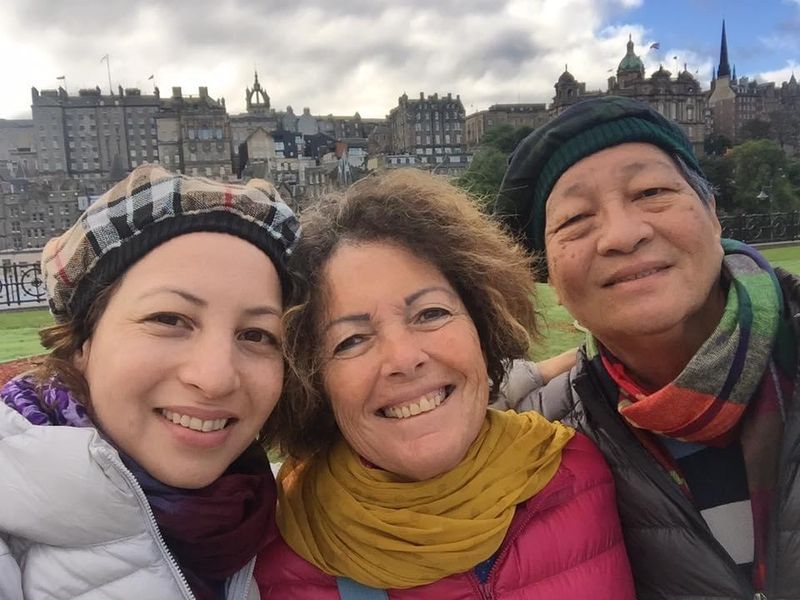
Dondoy with wife Racheli and daughter
In 1975 I got married, and a year later had a daughter.
In 1979 we volunteered for service to help a smaller kibbutz get back on its feet... another long story but to make it short I was voted to head their dairy cowshed which was losing quite heavily. Nothing more could be done to save the dairy, so we sold all the cows, calves and all the milking equipment and liquidated the dairy. We stayed there for a little more than a year.
When we volunteered, we made an agreement with the kibbutz that at the end of our stint the kibbutz will allow us to visit the Philippines. We arrived in the Philippines in 1980. It must have been a difficult visit for my wife. After a year, we separated and divorced.
I then joined the Israeli Army service in artillery as technical sergeant in charge of our unit's firing computations. Every year we have a month of training with the cannons and another month usually wintertime to do guard duties all over the country including Lebanon as well as the borders of Egypt, Syria and Jordan. That's how I was able to know the whole of Israel quite intimately.
In 1985 I met another girl from one of the kibbutz’ arranged meeting of kibbutz members who do not have partners, and who want to meet members of the opposite sex who were available. Her name was Rachel - a daughter of one of the founders of Kibbutz Ramat Hashofet.
All throughout the summer of 1985 I visited her kibbutz. She also came to visit me at kibbutz Yagur for the weekends and sometimes even weekdays as she was studying in Haifa. In October of 1985 we asked the permission of the secretariat of Yagur to allow me to transfer over to Ramat Hashofet. I transferred to Ramat Hashofet on the Jewish New Year of 1985.
After a couple of months, we were given a kibbutz wedding at Ramat Hashofet with some of my closest friends at Yagur attending.
I'll send the last chapter later as we are now preparing for Pesach (Feast of the Passover) ...have patience – Rog
It is a fascinating discovery for many Filipinos. It turns out, the Navas in the Philippines have Jewish origins. Whether they came via the galleon trade, or as the progeny of friars, many of whom are Conversos, Sephardic Jews living in Spain who were forced to convert to Christianity during the Spanish Inquisition. Rather than face death and or deportation, many chose to convert. Interesting aside, in my wife’s case, her genetic markers conducted by a local research hospital were traced all the way to Babylon.
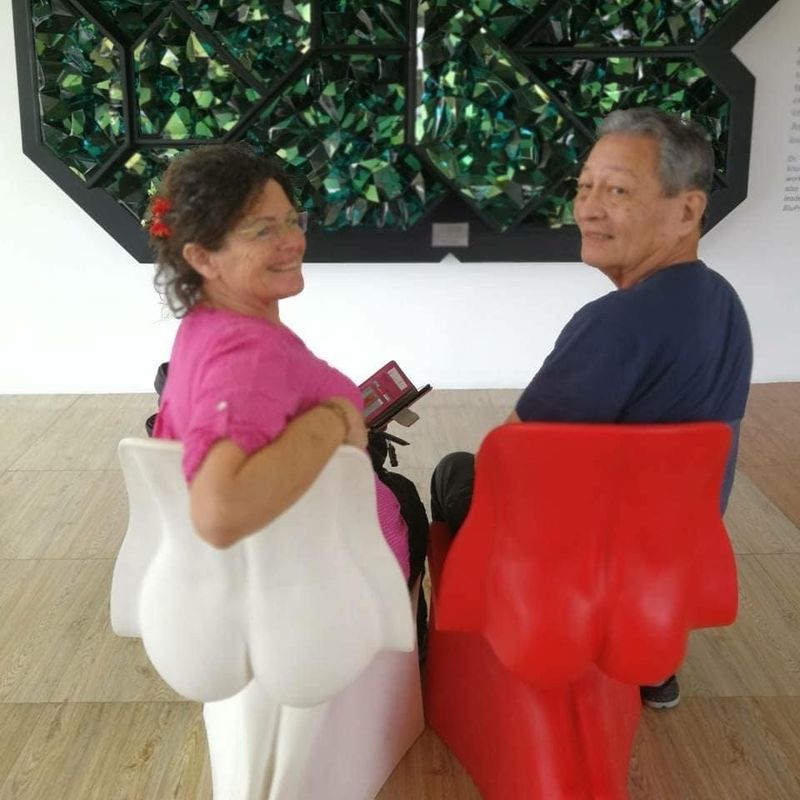
Dondoy and wife Racheli Nava
PART 5: FINDING MY JEWISH ROOTS, RAMAT HASHOFET AND EXPLORING COMPLEMENTARY MEDICINE
Rog - Shalom!!!
Sorry for the delay...too busy - too many Jewish holidays...from Passover to Holocaust remembrance to fallen soldiers Remembrance Day to Independence Day --- whew!!! to several birthdays within a span of a couple of weeks...that's a lot...!!!
Anyway, we're over all that now...hopefully... (unless a war breaks out somewhere sometime...lots of warmongers here are talking out loud...very loud!!!) But like all things - they all blow over with a pffffffhtttt!!!
Yes...when I studied my roots, I found out that the Navas have a Jewish background - from Bilbao, Spain. The poor man was forced to convert to Christianity or say goodbye cruel world.
He then joined one of the galleon trips to the Phil and jumped ship in Manila...went on to live in Sta. Ana, Manila and married.
One of my great-great ancestors married a Chinese mestiza woman. We have relatives all over Quezon province as well as Ilocos Sur (from my mother's side).
Yes, you can share my odyssey with any brod who takes interest as well as anyone for that matter.
LIFE IN RAMAT HASHOFET
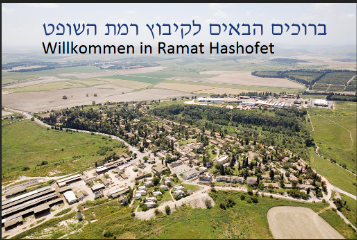
In 1985, I transferred from Yagur to Ramat Hashofet on the Jewish New Year. And since I was already a senior member (already had a nice senior's quarter in Yagur), Ramat Hashofet also provided us with a seniors' apartment. I could choose my place of work anywhere I wanted - privilege of senior members but then again, I chose to work all over - wood factory, plastic factory, cotton fields, poultry farm, etc.
Racheli, my wife started to learn complementary medicine. We had to slowly teach everyone to accept it as such instead of alternative medicine. It caught on after a few years, but regular medical practitioners were so much against our kind of healing thinking we would change regular medicine, we had to explain that our medicine was complementary - together with accepted and known medical practices - no one will change that.
I decided to go into that field also, but I went right away into the study of Traditional Chinese Medicine concentrating on Tuina treatment and became very adept on it that my Chinese professor convinced me to go to China and continue my studies there.
Not very simple...I had to convince my kibbutz to allow me to go there in the first place.
PART 6: DOCTOR OF TRADITIONAL CHINESE MEDICINE
I convinced everyone by pointing out that, instead of studying for my final year in Tel-Aviv, it would be much cheaper to go to China and stay there for even a whole year. I was given permission but only if I were to go alone - ensuring that I'll have to come back if the rest of my family stays here.
So, I went to Jinan, Shandong (halfway between Beijing on the north and Shanghai in the south. Jinan is the place where they do deeper studies of Chinese Medicine as well as archive the old and new procedures in Chinese medicine.
We went to the university where they also have a hospital for Chinese Medicine and we were given dormitory rooms, looking very much like 5-star hotel rooms, where we ate all our meals, and where we worked with the head of the Tuina Department.
Just like in the kibbutz with its Ulpan program of half a day's study and half the day's work, we learned the various points of TCM (Traditional Chinese Medicine) - acupuncture, Tuina, Moxa, etc., both in the practical areas as well as the classroom aspects of it.
We were given trips to places like the birthplace of Confucius, the area's heavenly mountain. Jinan also has a place which they call the caves of the thousand Buddhas as well as their renowned spring lake where one can meet the cities people especially on weekends. One of my patients who worked at the ticket office, invited everyone to come and visit the place - of course free, so we all went and enjoyed ourselves immensely.
Three months went by very fast and had everyone left except me.
I asked if I could stay for a couple of months more to continue my specialty on Tuina. I was given the OK and I transferred to live right next to the University Hospital. My knowledge of Tuina and TCM treatment progressed by leaps and bounds, as I was the only one left under the sponsorship of the Director.
After another four months I was ready to do a doctorate work on Tuina. I ended with a couple of diplomas, several medals, as well as the university pin.
Immediately after returning home, I set up my clinic at Ramat Hashofet. I was also given a spot at the Medical Center at Tiberias as well as private treatments at neighboring cities like Nazareth, Haifa and Afula. Backbreaking work but very rewarding.
I was getting so proficient at Tuina that I offered to teach courses at country clubs of Afula as well as Nazareth. Racheli was also employed to teach Yoga (she's a qualified teacher) and we called our course Back Maintenance and Body Management,
.I wrote a book on the subject. We used it as the syllabus of our course, and Racheli and some of our friends translated it from the original English version to Hebrew. It was a huge success.
Treatments, home calls, courses...these things filled my schedule except for a couple of months when we decided to work at the kitchen/dining room complex of the kibbutz high school children, replacing some members who had retired.
I gained about ten kilos from that work.
... and life went on from treating by Complementary Medicine, teaching Back Maintenance courses, and Cooking
PART 7: THE TEACHER AND THE COLLAPSE OF THE KIBBUTZ WAY OF LIFE
After I finished writing my book, I went to my sister’s place in Los Angeles, to advertise my technique as well as promote my book. I was fondly received by the Filipino community there mostly from Lucena. I also did several teaching courses and many treatments.
I came back to the kibbutz and after a month went to the Philippines also with the aim of promoting my technique and the book.
Brod Sonny Villariba's sister was my host and we also had several courses and treatments but with one difference. I taught them the basics of Tuina and the foundation of how to treat mostly bad backs and the idea of how the body can go wrong when the vertebral spines are pinched and damaged.
When I came back to Israel I was so engrossed in my work that I was up to almost 18 - 20 hours a day including weekends - very hectic!
Towards the end of 2003 the kibbutz decided that we should privatize the whole of the kibbutz way of life. Before, we did not get any salaries but a yearly budget or allowance, no matter where you are working e.g. a member whose job is to work at the dishwashing machine gets the same budget as the member who's running our wood factory.
We had our meals in the dining room with all the trimmings and based on the kibbutz principle that one can eat whatever and however much he wants and not have to pay for the meals. Our yearly budget was computed taking into consideration our living conditions like clothes, housing, shoes, travels.
No more.
Each member will receive remuneration from whatever his work propagates, and from these, will be deducted all the municipal expenses. Whatever will be left goes to the member's bank account.
Each one of us opened an account.
The family system was reintroduced whereas before each member (even children) was considered an entity. We paid for each meal, our children didn't have to live in children's houses anymore but in the members' apartments.
(Rogie’s comment - Our host Uzi Benshalom at Degania Bet, which Tess and I visited, also described these radical changes to the system. Some of the conservatively run kibbutzim were slow to adapt to the changes and still cling to the old system, but most started commercial ventures to financially survive.)
We knew that privatization was coming so we prepared long before that came into effect. Racheli and I found good jobs in the city and had good salaries. We were able to afford to buy a car, Subaru 4-wheel drive, and paid for all our travel expenses. In all, we profited from the privatization move.
And as time came for retirement (67),
I advised all my patients that if they want to continue their treatment they have to come to my clinic at the kibbutz because I would not be doing rounds and home treatments anymore. Even now I still give treatments here at home in my clinic.
So now I'm a retiree. So is Racheli - my wife. We have 4 children, 2 grandchildren and Louie (our dog). Racheli still works though, taking care of a child (full time) in a city near us (Tiv'on).
Our pension from the kibbutz isn't that high and the state pension isn't that great either, but they are enough to let us live comfortably even through our old age.
And so, life goes on from day to day.
Rog - I live with my family in Kibbutz Ramat Hashofet in the Megiddo area a bit north - close to Haifa, Nazareth and the area of Armageddon (from the Hebrew Har Megiddo or the mountain of Megiddo)...yes, it was a romantic way of life until a couple of years ago when our kibbutz decided to privatize which means that our kibbutz now is more of a corporation and the members all live normal lives living according to their abilities but we're retired now so that we receive Kibbutz pension and a bit of state pension benefits...Dondoy...Shalom! Till we shall meet again...in the sun...
(It has been a few years now since I renewed my conversations with Dondoy and it was a revelation. What a wonderful life he has had, and not in a material sense as we, especially in the “West”, are won’t to follow. Now that I am half retired, I hope to travel and perhaps meet up with him once more and complete a life circle, from Lucena to Kibbutz Rabat Hashofet.
I am very happy for Dondoy. He blazed a unique path and found his North Star. I am certain that this is not the end of the road yet. Dondoy still has a few more chapters left in him, after leading such a rich and productive life. All that physical work living in the kibbutz, he looks pretty fit to me, and will likely outlive many of us. Rogie ‘66)
About the Author:
Rogelio J. "Rogie" Concepcion '66 is a retired investment and corporate banker with the Royal Bank of Canada, a community leader and activist who helped found "Atin Ito," a widely-circulated Filipino community newspaper in Ontario, Canada; he and his wife Tess now own and operate several bed and breakfasts in the Toronto metropolitan area.
